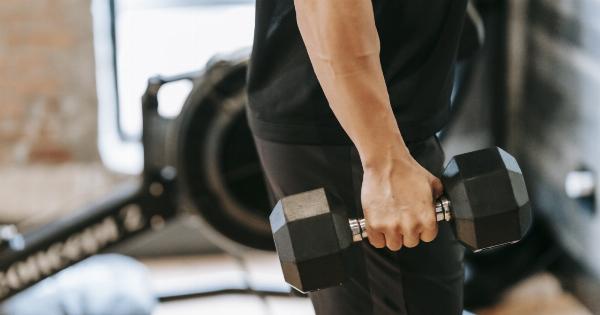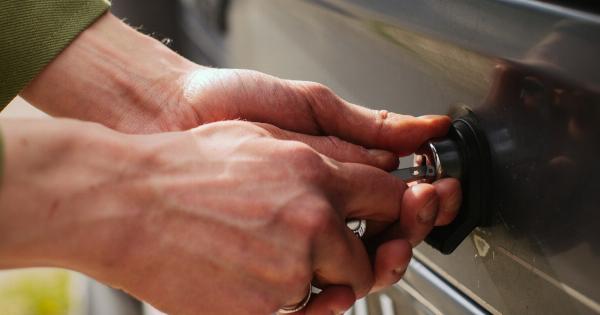In our society, there are numerous myths surrounding male bodies and their capabilities. These misconceptions often lead to unrealistic expectations and stereotypes.
This article aims to debunk these myths and provide a more accurate understanding of male bodies and their potential.
Myth 1: All Men are Naturally Strong
One common myth suggests that all men are naturally strong. While it is true that men generally have more muscle mass and testosterone levels, strength varies greatly from person to person.
Factors such as genetics, physical activity, and training play a crucial role in determining an individual’s strength. It is essential to recognize that not all men possess exceptional strength without effort.
Myth 2: Men Do Not Experience Body Image Issues
Contrary to popular belief, men do experience body image issues. The media often portrays an idealized male body, leading to body dissatisfaction and insecurity. Men may feel pressure to have a well-defined muscular physique or a particular body size.
It is crucial to acknowledge that body image concerns affect individuals of all genders.
Myth 3: Men Cannot Have Eating Disorders
Another prevalent myth suggests that eating disorders only affect women. However, studies show that men are also susceptible to these disorders. While the prevalence may be higher among women, men can develop anorexia, bulimia, or binge eating disorders.
Raising awareness about male eating disorders is significant in order to provide proper support and resources.
Myth 4: All Men possess Extraordinary Athletic Abilities
It is commonly assumed that all men possess extraordinary athletic abilities. While it is true that men have often dominated in various sports, not all men are naturally athletic.
Just like any other skill, athletic abilities require practice, training, and dedication. Generalizing all men as naturally gifted athletes undermines the hard work and effort put in by individuals to excel in their chosen sports.
Myth 5: Men Do Not Need to Worry About Body Fat
Many myths suggest that men do not need to worry about body fat and can eat anything without gaining weight. However, excessive body fat can lead to various health issues, regardless of gender.
Men, like women, need to maintain a healthy body weight and body fat percentage to reduce the risk of obesity-related conditions such as heart disease, diabetes, and high blood pressure.
Myth 6: All Men Have High Libido
Another prevalent myth revolves around men having an inherently high libido. While testosterone contributes to sex drive, it is important to note that individual variations exist.
Factors such as stress, health conditions, medication, and relationship dynamics can influence a man’s libido. Assuming all men have high sexual desires can put undue pressure on individuals and lead to misunderstandings.
Myth 7: Men are Emotionally Strong and Stoic
Society often expects men to be emotionally strong and stoic, discouraging them from expressing vulnerability or seeking help. However, men, like women, experience a wide range of emotions.
Denying their emotional needs can have detrimental consequences on mental health. Encouraging emotional expression and seeking support is crucial for overall well-being.
Myth 8: Men Cannot be Victims of Domestic Violence
It is a misconception that only women can be victims of domestic violence. Men can also face domestic violence in various forms, including physical, emotional, or sexual abuse.
However, the stigma surrounding male victims often prevents them from reporting or seeking help. Recognizing that both men and women can be victims of domestic violence is essential for providing support and resources to all survivors.
Myth 9: Men Do Not Suffer from Body Dysmorphic Disorder
Body dysmorphic disorder (BDD) affects both men and women. This mental health condition involves obsessive concerns about perceived flaws in one’s appearance.
Men with BDD may obsess over muscle size, hair loss, facial features, or other physical attributes. Raising awareness about BDD in men is vital to ensure early detection and appropriate support.
Myth 10: All Men Are Naturally Aggressive
Stereotypes often portray men as naturally more aggressive than women.
While testosterone can contribute to aggressive behavior, it is important to understand that aggression varies among individuals and is also influenced by social and environmental factors. Assuming that all men are naturally aggressive overlooks their capacity for compassion, empathy, and peaceful conflict resolution.
Conclusion
It is essential to challenge and dispel the myths surrounding male bodies. By debunking these misconceptions, we can promote a more inclusive and accurate understanding of male experiences, struggles, and potential.
Recognizing the diversity and complexity of male bodies allows us to foster healthier attitudes and break free from harmful stereotypes.




























